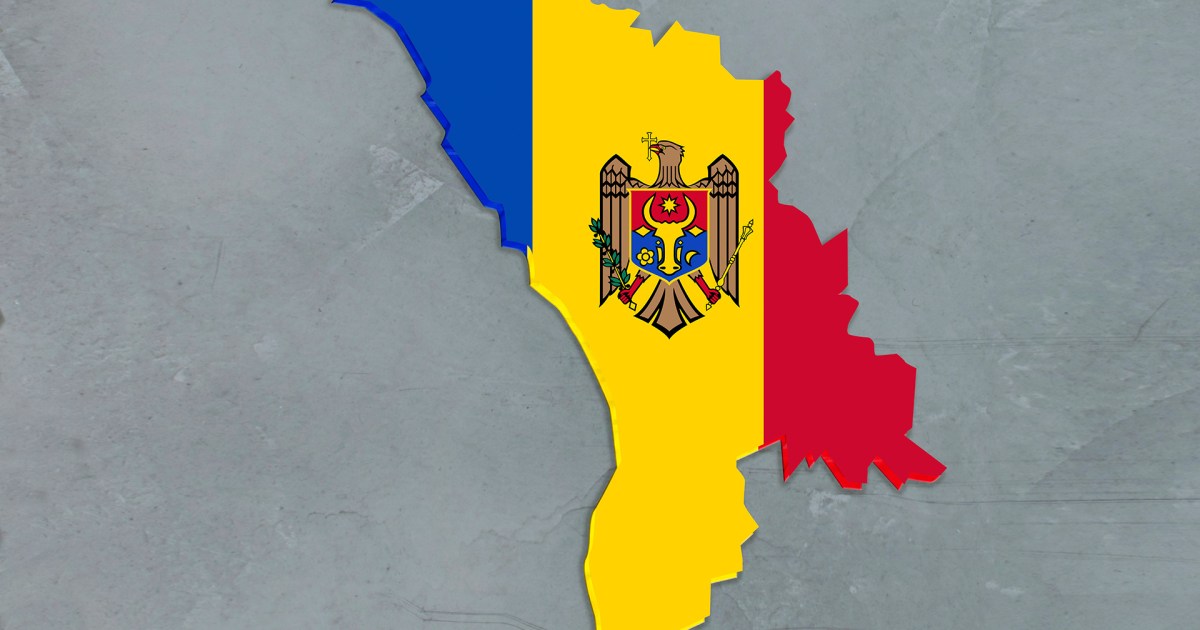Kyiv and Western capitals are closely watching the situation in Moldova, the neighboring country of Ukraine, due to fears that this former Soviet republic will become Russia's next target, especially after Russian statements about seeking to reach Moldova's borders after taking control of southern Ukraine.
In recent times, any event in the former Soviet countries is traditionally seen as an ongoing conflict between Russia on the one hand, and the West (Brussels and Washington) on the other, and Moscow has always highlighted in its dialogue with Moldova the preservation of Kishnev's neutrality and its non-membership in NATO. (NATO)
The Moldovan Foreign Ministry protested, saying that it summoned the Russian ambassador on April 23, 2022, to express “grave concern” over the statements of a senior Russian military commander who said the country’s Russian-speaking population was being repressed. The ministry posted on its website that “these statements are baseless, Moldova is a neutral country and this principle must be respected by all international parties, including the Russian Federation."
This came after Russian state news agencies quoted Rustam Minkayev, deputy commander of the Central Military District forces in the Russian army, as saying that full control of southern Ukraine would allow his country to reach Transnistria, a breakaway region in Moldova backed by Russia.
Today, Moldova, a frozen epicenter of tension between the West and Russia, suffers from ethnic divisions with regional Gagauzia (a self-governing Turkish majority) and Transnistria (a de facto independent Russian majority), two regions that are diplomatically close to Moscow, and in Moldova alternating power in favor of powers For rapprochement with Russia and supporters of integration with the European Union, but without any of them enjoying a clear majority.
In recent times, any event in the former Soviet countries is traditionally seen as an ongoing conflict between Russia on the one hand, and the West, Brussels and Washington on the other, and Moscow has always highlighted in its dialogue with Moldova the preservation of Kishnev's neutrality and its non-membership in NATO ( NATO).
Moldova, the former Romanian-speaking Soviet republic, one of the poorest countries in Europe - since its independence from the Soviet Union in 1991 - has faced recurrent political crises, and in recent years major corruption scandals involving elites have threatened vital Western financial aid, knowing that Moldova is not of great economic importance for To the European Union, where the only competitive sector is agricultural products, while the corruption of the ruling class and the departure of young graduates impede the emergence of new services and an active civil society, add to this the frozen conflict management in Transnistria, the pro-Russian and out-of-state separatist region in the east of the country On the border with Ukraine, a conflict that recalls the experience of South Ossetia in Georgia.
In 2014, Kishnev signed an association agreement with the European Union, which angered Moscow, and in response, the Kremlin imposed a ban on exports of Moldovan agricultural products, which dealt a severe blow to the local economy, and after 8 years and despite the gradual lifting of these sanctions, the European Union outperformed Russia And he became the first trading partner of Moldova.
Russia sent its forces to Transnistria after the collapse of the Soviet Union in 1991, to end the fighting in the Russian-speaking region, and a peace agreement was signed in 1992 between Russia and Moldova, which ended an armed conflict between Kishnev and Transnistria, and resulted in thousands of deaths.
The region is currently one of the "frozen conflicts" in the space of the former Soviet Union.
The issue of Moldova and the Transnistrian region has been discussed for years in the framework of the so-called 5 + 2 formula, with the participation of Moldova and Transnistria, with the European Union, Russia, Ukraine, the United States and the Organization for Security and Cooperation in Europe, without making progress, and Transnistria held a popular referendum years ago, in which the population was asked to choose between Future within Moldova or independence, followed by accession to the Russian Federation, and more than 97 percent of the votes, with a high turnout, were cast in favor of joining Russia.
Transnistria, located between Ukraine and Moldova geographically, is supported economically, politically and militarily by Russia. Russia is taking a similar step in their region.
Transnistria has its own constitution, flag, national anthem, parliament, army and police force, and negotiations to resolve the crisis between Moldova and Transnistria since 1993 continue in the corridors of the Organization for Security and Cooperation in Europe, as Moldova insists that Transnistria is part of its territory, while trying to manage Transnistria, persuading the world of its independence.
Despite the peculiarities of the Ukrainian crisis, observers point to a recent pattern in Russian military operations, with the aim of thwarting the aspirations of the neighbors towards the West, in the context of stopping any further expansion of NATO.
The so-called "frozen conflicts" provided an opportunity to expand Moscow's influence outside the Russian borders, in the space of the former Soviet Union, as it supported a pro-regime in the separatist region of Transnistria in Moldova since the 1990s, and in 2008 it moved against Georgia to support the separatist governments in South Ossetia and Abkhazia. Six years later, in 2014, Russia annexed Crimea from Ukraine and began supporting pro-Russian separatists in the Donbass.
It remains to be said, fears of moving away from the Russian sphere of influence are prompting Moscow's moves, in the former Soviet space, at a time when other fears are increasing that Moscow will adopt the same justification for intervention in Georgia and Ukraine (protecting the Russians), and repeating that in Moldova, while the Russia has not yet recognized Transnistria's independence, but it has weakened Moldova's sovereignty and frozen its Western integration over the past 30 years.

